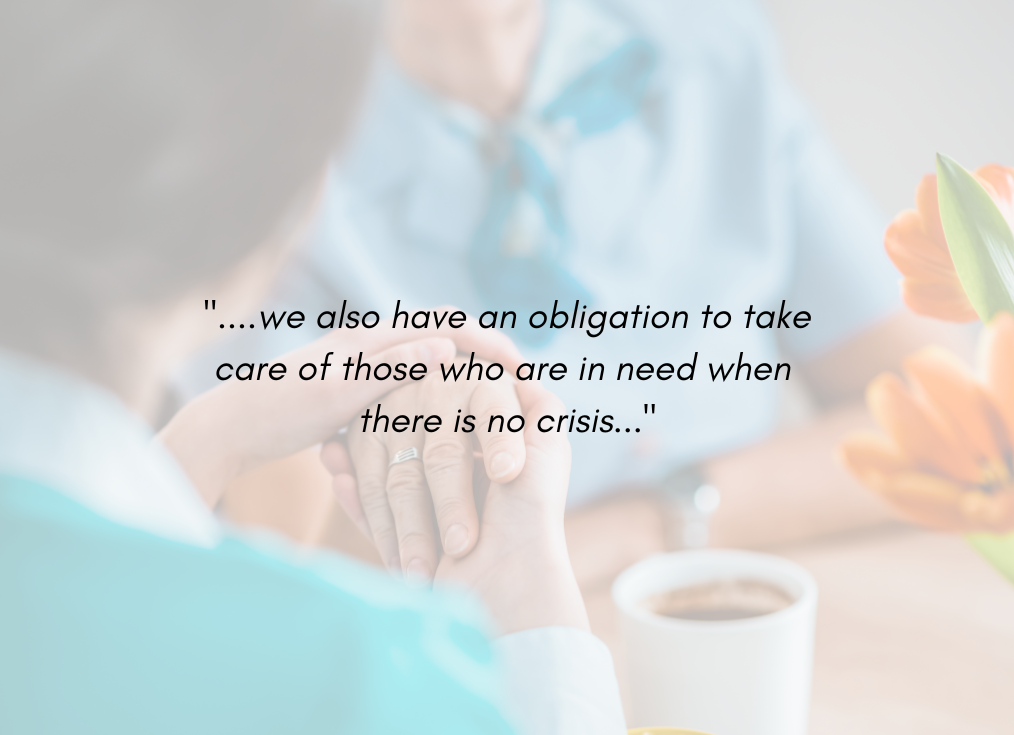Out of Sight, Not Out of Mind

May 12, 2023
There is a verse in this week’s double Torah portion, Behar-Bechukotai, that often goes unnoticed. Whether it is because it nears the conclusion of the Behar Torah portion, following the intense detail on the laws surrounding the Sabbatical [seventh] year, and then the Jubilee year, the fiftieth year after seven Sabbatical cycles. Or, if it is because the verse is so awkward and unclear that not only do Torah translations take broad liberty with the language, but some also differ in the intent and meaning the translations portray.
Because the range of translations differs so dramatically, I will simply paraphrase the verse (Leviticus 25:35) for simplicity but encourage you to read it in the context of your Torah of choice; If your fellow becomes destitute and comes under your authority, you shall support them as though you would a tribesman and let them live by your side.
At first glance, the message seems obvious and consistent with other obligations on how to treat one another. In fact, adding the descriptor “destitute” makes the statement even more pertinent and immediate. So why the uncertainty in translation?
There is a story of the great Chofetz Chaim, who was traveling to raise money for a school in need. When he finally arrived at the home of the wealthy benefactor, the weather had turned dangerously cold. When the homeowner opened the door to greet the great sage, he promptly invited him into his home to get out of the bitter cold. The Chofetz Chaim, however, insisted on securing the contribution before entering the warmth and protection of the donor’s home. The Chofetz Chaim understood that in that very moment, on that freezing doorstep, the donor would have the greatest empathy for the children in need.
When it comes to taking care of those in need, we often succumb to the “out of sight, out of mind” reality of being human. In fact, when there is a crisis, most of us have an emotional reaction desiring a physical way to express our innate response to make a positive difference. Ask any development professional, and they will tell you candidly, there is a direct correlation between the amount of the contribution and the emotional tug on the donor’s heartstrings.
However, the tension in Leviticus 25:35 is that it is not simply telling us to step up when the destitute are in need. As the Chofetz Chaim knew, people will respond in times of crisis and emotional anxiety. However, what this verse is really teaching us is that we also have an obligation to take care of those who are in need when there is no crisis, when we are not personally in tune with the needs of the community, and when our life seems totally normal and stress-free.
Dr. John Ruskay, who led UJA’s (Jewish Federation of NYC) response to the 9/11 crisis, was memorably quoted as saying, “We were there on 9/11 because we were there on 9/10.” The Jewish community was ready “because of the strong, interconnected network of nonprofits already in place, providing essential services on a regular basis.” This is what we do. This is the mandate of Leviticus 25:35; when those in need are not on the minds of the many, the Jewish Federation maintains its focus to support everyone as though we would “a tribesman and let them live by [our] side.”
This weekend let us remember a forgotten friend or neighbor or reach out to a loved one who may feel forgotten, and may we support them and let them know that they are by our side and on our minds even when we are not together. Because we are…
STRONGER TOGETHER.
Shabbat Shalom,

